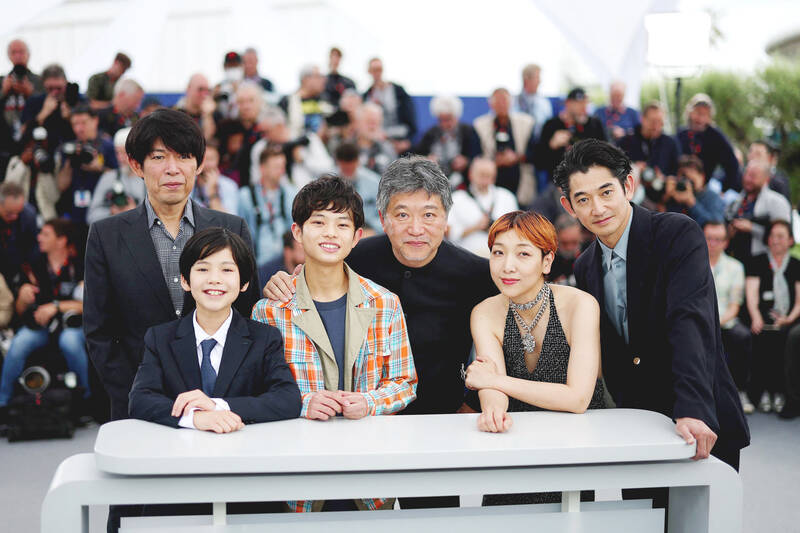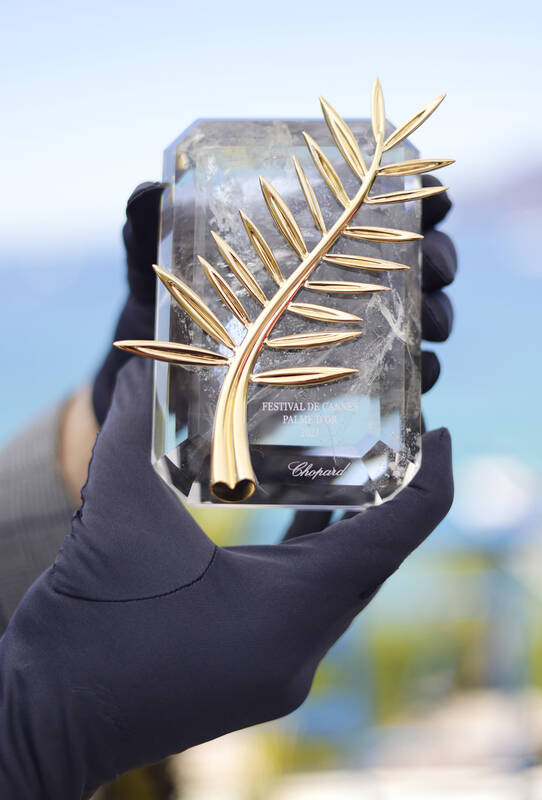On the opening night of the Cannes film festival the guests gather for the premiere of Jeanne du Barry, a historical romp. It is the tale of a courtesan (played by the film’s director, Maiwenn) who catches the eye of a libidinous king and thereby flies in the face of propriety and good taste. The palace, we learn, is a place thick with intrigue, byzantine protocols and ridiculous rules that make no discernible sense. “It’s grotesque,” says one character. “No, it’s Versailles,” says another.
The royal court has its troubles — and so too does Cannes, where the traditional grand unveiling was all but derailed by the arrival of Johnny Depp, a Hollywood star dogged by allegations of domestic abuse whose performance as King Louis XV is his first leading role in a little over three years. Most critics were outraged but the festival was unmoved. Cannes shrugs off cancel culture and tends to lean into a fight. It figures that controversy is good for business and keeps us all on our toes.
“I first came to Cannes in 1992, accidentally,” Depp told reporters after he had toured the red carpet. “And it was an absolute circus like nothing I’d ever seen. And it remains that today — which is a good thing, I think.”

Photo: Reuters
If we applaud complexity in our films, why shouldn’t we require that of our film festivals, too?
Peer from one Croisette balcony and the place is a palace. Peer from another and it’s Barnum and Bailey’s big top, with all of the clowns falling out of their car and the elephant dung piled high, center stage. Some people detest it, which is a perfectly valid response, because it’s chaotic, enraging and wilfully perverse. But it is also bracing and challenging and quite often sublime. I love it, I hate it: sometimes within the same breath. It’s always struck me as amusing that Cannes once clutched its pearls and kicked out Lars von Trier. If Von Trier were a festival, he’d be this one right here.
The first days are a gallop. The guests are toiling to keep pace. The schedule seems at pains to cater to every taste, every time frame. Those with a spare four hours on their hands can immerse themselves in Steve McQueen’s Occupied City, a monumental, cross-cutting portrait of Amsterdam which shows the ghosts of the war years still haunting the canalside streets and picnic spots of today. Those on a stopwatch are better served by Pedro Almodovar’s Strange Way of Life, a 30-minute queer western. Dancing in the shadow of Brokeback Mountain, this casts Ethan Hawke and Pedro Pascal as ill-starred lovers in the one-horse town of Bitter Creek.

Photo: AP
This year’s jury president is the Swedish director Ruben Ostlund, a two-time Palme d’Or winner for 2017’s The Square and 2022’s Triangle of Sadness. He tells me that Cannes is unique in the way it’s able to balance both sides of the industry: the multiplex and the arthouse, the large with the small.
“So you have this big commercial presence here on the Croisette. But then you also get the small Iranian film shot on a cheap DV camera — and the organizers will give it the exact same amount of attention.”
No doubt Ostlund’s right. A random glance at the program throws up some wild juxtapositions. On the first Friday, for instance, blockbuster fans happily fill their boots at the premiere of Indiana Jones and the Dial of Destiny, in which 80-year-old Harrison Ford prepares to join battle with a band of ex-Nazis. Anyone requiring a more shaded and troubling film on a similar subject, though, would be advised to beat a path to Jonathan Glazer’s The Zone of Interest, a romantic drama that incongruously plays out on the edge of Auschwitz. Turn one way, you’re in heaven. Turn the other, it’s hell.
First off the rank in hunt for the Palme d’Or comes Catherine Corsini’s Homecoming, a decent bantamweight contender, uncovering buried family trauma on the island of Corsica. It’s crisply performed and engagingly handled, gently tackling themes of gender, race and class politics. All the same, I fear that Corsini’s picture may finally be too tasteful and underpowered to properly trouble the judges.
Monster, meanwhile, boasts a robust constitution. Hirokazu Kore-eda’s film hinges on an altercation between a troubled student and a callow schoolteacher; an event that quickly threatens to consume everybody involved. But having initially established the crisis, Kore-eda pulls back; repositions. He frames the action from the perspective of the mother, the child and the teacher, so that his intimate human drama takes on the properties of a procedural thriller. Who’s lying, he’s asking. What is the real story here? Monster is at its most powerful during its fraught opening half, when we’re lost in the thicket, trying to make out the woods from the trees. Arguably it becomes less charged and successful when it belatedly steps in to explain. Sometimes the great mysteries are the ones that remain unresolved.
Out on the press terrace, writing this piece, I’m waylaid by an amiable, wiry man by the name of Sy Sabata. Sy explains that he’s of Romany heritage and a former Mr Universe, in town to raise funds for a big-screen biopic. He’s come to discuss the project with a Norwegian producer but he’s not exclusive and besides, the deal’s not yet set in stone. He sizes me up and makes a snap decision. He says: “Would you like to write the story of my life?”
I’ve covered Cannes for years and I still can’t pin it down. Great movies reveal fresh layers of mystery every time we see them. The best characters surprise us; that’s what makes them so compelling. And if we applaud complexity in our films, why shouldn’t we require that of our film festivals, too? Screenings thunder by like stampeding wildebeest on the plain. The scrum is so thick, I’m smelling 10 different armpits. This event contains multitudes. It contradicts itself and keeps going. It’s dreadful and it’s gorgeous. It’s grotesque, it’s Versailles.

May 18 to May 24 Pastor Yang Hsu’s (楊煦) congregation was shocked upon seeing the land he chose to build his orphanage. It was surrounded by mountains on three sides, and the only way to access it was to cross a river by foot. The soil was poor due to runoff, and large rocks strewn across the plot prevented much from growing. In addition, there was no running water or electricity. But it was all Yang could afford. He and his Indigenous Atayal wife Lin Feng-ying (林鳳英) had already been caring for 24 orphans in their home, and they were in

On May 2, Chinese Nationalist Party (KMT) Chairman Eric Chu (朱立倫), at a meeting in support of Taipei city councilors at party headquarters, compared President William Lai (賴清德) to Hitler. Chu claimed that unlike any other democracy worldwide in history, no other leader was rooting out opposing parties like Lai and the Democratic Progressive Party (DPP). That his statements are wildly inaccurate was not the point. It was a rallying cry, not a history lesson. This was intentional to provoke the international diplomatic community into a response, which was promptly provided. Both the German and Israeli offices issued statements on Facebook

President William Lai (賴清德) yesterday delivered an address marking the first anniversary of his presidency. In the speech, Lai affirmed Taiwan’s global role in technology, trade and security. He announced economic and national security initiatives, and emphasized democratic values and cross-party cooperation. The following is the full text of his speech: Yesterday, outside of Beida Elementary School in New Taipei City’s Sanxia District (三峽), there was a major traffic accident that, sadly, claimed several lives and resulted in multiple injuries. The Executive Yuan immediately formed a task force, and last night I personally visited the victims in hospital. Central government agencies and the

Australia’s ABC last week published a piece on the recall campaign. The article emphasized the divisions in Taiwanese society and blamed the recall for worsening them. It quotes a supporter of the Taiwan People’s Party (TPP) as saying “I’m 43 years old, born and raised here, and I’ve never seen the country this divided in my entire life.” Apparently, as an adult, she slept through the post-election violence in 2000 and 2004 by the Chinese Nationalist Party (KMT), the veiled coup threats by the military when Chen Shui-bian (陳水扁) became president, the 2006 Red Shirt protests against him ginned up by